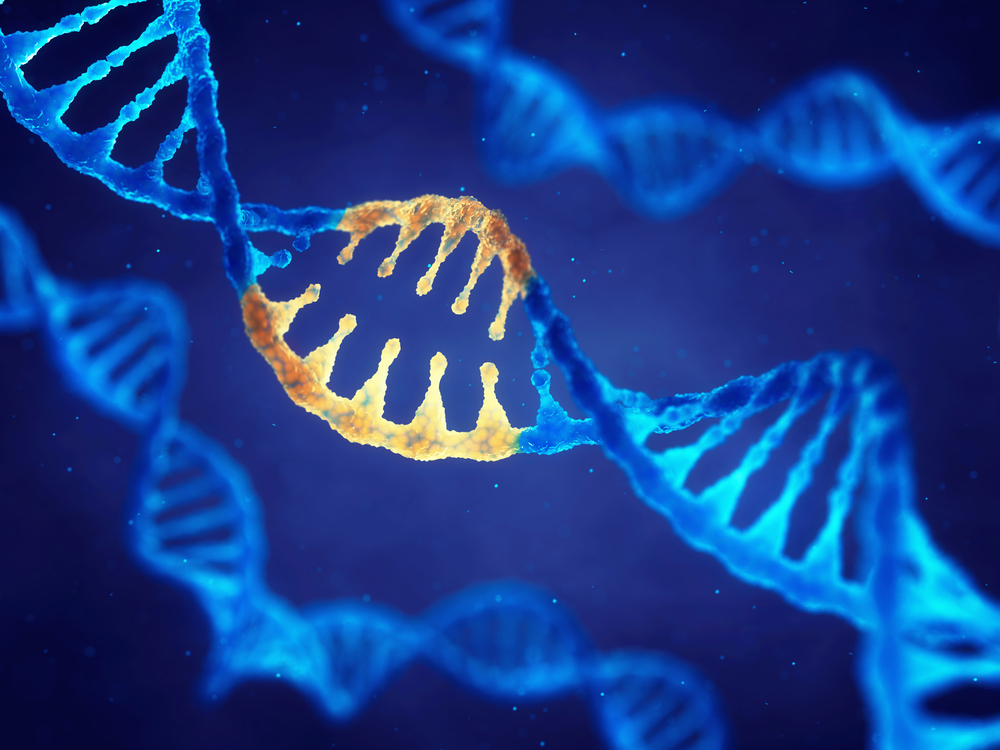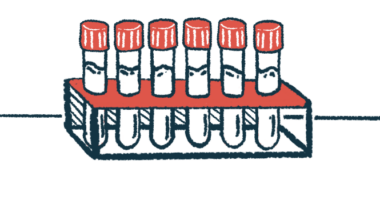#AAN2018 – SMA Treatment Candidate RG7916 Increases Amount of Key SMN Protein, Clinical Trials Show

Roche’s treatment candidate RG7916 increased the amount of full-length, functional SMN protein in spinal muscular atrophy (SMA) patients, according to soon-to-be-presented data from a Phase 2/3 clinical trial.
The company will share its clinical results at the 2018 American Academy of Neurology (AAN) Annual Meeting, April 21-27 in Los Angeles, California.
SMA patients have a defective SMN1 gene, which codes for the SMN protein. Expression of another similar gene, SMN2, also generates the SMN protein, albeit shorter and unstable. SMN2 produces only a limited amount of functional SMN due to alternative splicing (editing) of a premature version of its messenger RNA (mRNA), the molecule that guides protein formation.
RG7916 is an oral treatment candidate designed to boost the production of full-length SMN2 mRNA and increase the levels of functional SMN protein. The small molecule is intended to bypass the blood-brain barrier and effectively reach the central nervous system (CNS).
In a poster titled, “Updated pharmacodynamic and safety data from SUNFISH Part 1, a study evaluating the oral SMN2 splicing modifier RG7916 in patients with Type 2 or 3 spinal muscular atrophy,” to be presented April 25, Roche will reveal data from its SUNFISH Phase 2/3 trial (NCT02908685), a multi-center, double-blind assessment of RG7916 in type 2 and 3 SMA patients age 2-25.
The trial is composed of two parts: Part 1 evaluates the safety, tolerability and pharmacological profile of several RG7916 doses in 51 patients; Part 2 addresses the safety and effectiveness of a dose selected from Part 1 in 168 patients.
A previous preliminary analysis of Part 1 indicated that RG7916 increased production of full-length SMN2 mRNA and decreased levels of shorter mRNA in a dose-dependent manner. Subsequent assessment revealed that the investigative compound increased SMN protein levels in the blood by a median 2.5-fold.
Results from Part 1 led to the selection of a RG7916 dose for Part 2, which is currently recruiting participants. No adverse events that would cause discontinuing treatment have been reported.
The study, “Preliminary Evidence for Pharmacodynamics Effects of RG7916 in JEWELFISH, a Study in Patients with Spinal Muscular Atrophy who Previously Participated in a Study with Another SMN2-Splicing Targeting Therapy,” will be presented at the conference April 26. It reveals the results of the JEWELFISH Phase 2 study (NCT03032172), an open-label assessment of the safety, tolerability and pharmacokinetics (PK) of daily treatment with RG7916 in type 2 and type 3 SMA children who already had participated in the trial of a therapy targeting SMN2 mRNA splicing. PK refers to a molecule’s absorption, bioavailability, distribution, metabolism, and excretion.
The analysis concerns eight patients who received RG7916 for up to 32 weeks. As in SUNFISH, RG7916 demonstrated a positive safety profile. The compound led to an increased amount of full-length SMN2 mRNA, and an up to fourfold increase from baseline over four weeks.
This trial is currently recruiting and is ongoing at sites across Europe and the U.S.
Preclinical data on the distribution and effect of RG7916 in SMN protein levels in two SMA transgenic mouse models, rats and monkeys also will be presented by Roche.
The study, “Relationship Between Central and Peripheral SMN Protein Increase Upon Treatment with RO7034067 (RG7916),” will be presented April 26 at 4.42 p.m. PTD.
Scientists assessed RG7916 levels in the blood, muscle, brain and cerebrospinal fluid (CSF) — found in the brain and spinal cord — of mice after single or repeated daily doses for up to 39 weeks.
Results revealed similar RG7916 levels in all tested samples, and a dose-dependent increase in SMN protein levels in mice brain and muscle. Of note, molecules that can modify SMN2 splicing and are structurally similar to RG7916 induced a parallel increase in SMN protein amounts in both brain and blood of SMA mice.
Overall, the results “in animal models imply that SMN protein increases seen in patients’ blood following [RG7916] treatment are expected to yield parallel SMN protein increase in CNS and muscle,” researchers wrote.
Treatment with RG7916 also is being tested in the multi-center FIREFISH Phase 2/3 trial (NCT02913482) in infants with SMA type 1, which is enrolling participants.
The U.S. Food and Drug Administration has given orphan drug designation to RG7916, which is being developed by Roche and Genentech in collaboration with PTC Therapeutics and the SMA Foundation.







